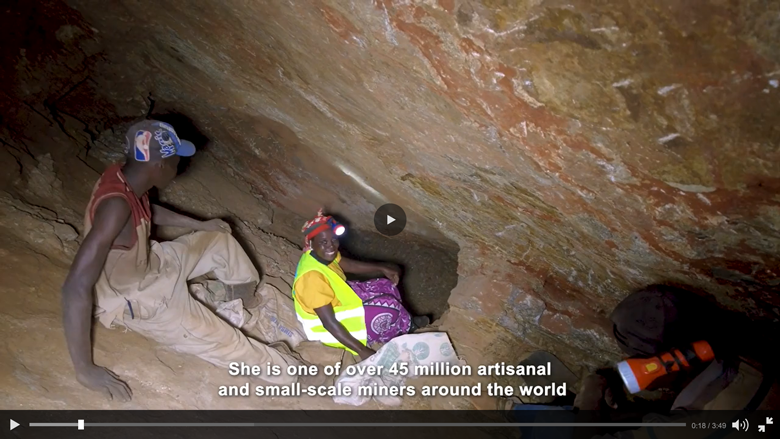COVID-19 is not only a worldwide public health emergency but has become an international economic crisis. Recent World Bank estimates indicate that COVID-19 is likely to cause the first increase of global poverty since 1998, pushing 71 to 100 million people into extreme poverty. In developing countries, the COVID-19 crisis is having an immediate and amplified impact on the poorest and most vulnerable regions. The 40 million people working in Artisanal and Small-scale Mining (ASM) around the world are particularly vulnerable because of their generally poor health care, precarious working conditions, high incidence of respiratory diseases, and exposure of vulnerable groups in an environment of little government oversight.
In April 2020, EGPS financed a systematic data collection exercise on how COVID-19 has affected ASM communities. The task team worked with 17 partners across 22 countries and published the results on the Delve platform. The research findings revealed encouragingly high levels of COVID-19 health awareness in remote mining communities and found that miners were relatively confident that if needed, they have adequate access to health support. However, an overwhelming number of miners are facing food insecurity as a result of cost-inflation of basic goods and reduced income resulting from temporary mine closures, a drop in mineral prices, and disruptions in the gold trade chains of ASM-sourced products/materials.
The findings informed the design of a targeted COVID-19 emergency response facility under EGPS. The emergency response was formally established in June with seed funding of 1 million Swiss francs from the Swiss State Secretariat of Economic Affairs (SECO). The window has since received financing of $4.8 million from Belgium and Germany. The latest funding enabled the second call for proposals.
The emergency response addresses ASM vulnerabilities and provides short-term assistance to a range of international, regional, national, and local organizations engaged in artisanal mining. The range of interventions considered by the emergency response includes, but is not limited to, the activities that:
- Address health and well-being impacts by improving access to clean water, sanitation stations, health information campaigns, and community kitchens and other types of food drives to alleviate food insecurity.
- Support social protection measures for miners and their households, such as assistance for miners who have had to re-enter their home communities due to temporary mine closures, or special measures to protect children during this crisis period.
- Assist with alternative livelihoods for miners wishing to transition out of ASM
- Support to women to mitigate social and health vulnerabilities from the crisis such as job loss, income reduction, childcare, and transition education.
- Monitor capacities to prevent encroachment into protected areas and other sensitive ecosystems
- Facilitate trade and avoid an increase in smuggling, illicit financial flows and financing of organized crime.
- Build access to finance and other forms of support to small mining cooperatives and entities
- Strengthen the organizational capacity of local governments, cooperatives and other ASM entities to provide ongoing support to these communities.
This emergency response builds on the World Bank’s work to promote ASM formalization through long-term engagement and government-owned policy reforms in countries such as Afghanistan, Burkina Faso, Burundi, Central African Republic, Democratic Republic of Congo, Indonesia, Mali, Niger, Nigeria, and Tanzania. It utilizes the full range of EGPS capabilities, responding to crises as they unfold in vulnerable, rural ASM areas.
